
Chapter 4
Random effect model (REM)
6/6/2022
Mr U_KHOA TOÁN KINH TẾ57

Objectives
(1) Introduce about Random Effect Model
(2) Estimates the slope paramaters in FEM by Within Estimator, Between
Estimator
(3) Estimates FEM by Least Square Dummy Variables (LSDV) method
Mr U_KHOA TOÁN KINH TẾ6/6/2022
58

Notes. There are too many parameters in the fixed effects model and the
loss of degrees of freedom can be avoided if the α*ican be assumed
random
4.1 Introduce Random effect model
Here,
α*iis assumed to be random
If the individual effects α*iare supposed to have non zero mean, with
E (α*i)= α0
Then we can define cross section units effects α*i= α0+ αi
Pre Eq. (4.1)
6/6/2022
Mr U_KHOA TOÁN KINH TẾ
59
y
it
= x
it
b + a
i
*
+u
it
i =1,N; t =1,T (4.1)

4.1.1 The assumptions on the components of errors
The components of the error are not correlated
E (αiuit) =0
Remark. The αiare independent of the error term uit and the regressors
xit, for all i and t
4.1.2 Mean and variance of errors
The mean and variance of the component errors are
60
About ai,
Eai
( )
=0, ,V ai
( )
=Eai
2
( )
= sm
2, ,E aixit
( )
=0, ,E aiaj
( )
=0
About uit ,
E uit
( )
=0, ,V uit
( )
=E uit
2
( )
= su
2, ,E uitujs
( )
=0 for i ¹j and t ¹s
Eeit
(
)
=0, ,V eit
(
)
=V yit
(
)
= sa
2+ su
2
6/6/2022
Mr U_KHOA TOÁN KINH TẾ

The covariance of the composite error,
Cov (εit, εjs ) = E(εitεjs)= E(αi+ uit) (αj+ ujs)
= E (αiαj+ uit αj+ αiujs + uitujs)
Or
Case 1. Cov (εit, εjs ) = σ2α+ σ2ui = j, t= s
Case 2. Cov (εit, εjs ) = σ2αi = j, t ≠ s
Case 3. Cov (εit, εjs ) = 0 i ≠ j, t ≠ s
61
6/6/2022
Mr U_KHOA TOÁN KINH TẾ


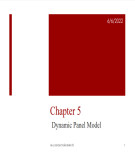
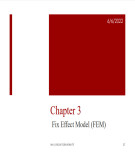
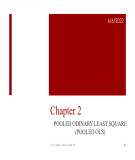
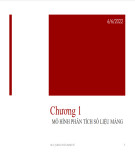
![Bài giảng Thống kê và Phân tích Dữ liệu: Cơ sở lý thuyết ra quyết định [chuẩn nhất]](https://cdn.tailieu.vn/images/document/thumbnail/2023/20230112/trangxanh0906/135x160/331673497792.jpg)

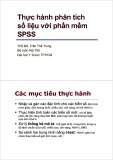
![Bài giảng tập huấn khảo nghiệm [Năm] chuẩn nhất](https://cdn.tailieu.vn/images/document/thumbnail/2018/20180331/hpnguyen5/135x160/1141522488184.jpg)











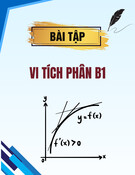



![Quyển ghi Xác suất và Thống kê [chuẩn nhất]](https://cdn.tailieu.vn/images/document/thumbnail/2025/20251030/anh26012006/135x160/68811762164229.jpg)
